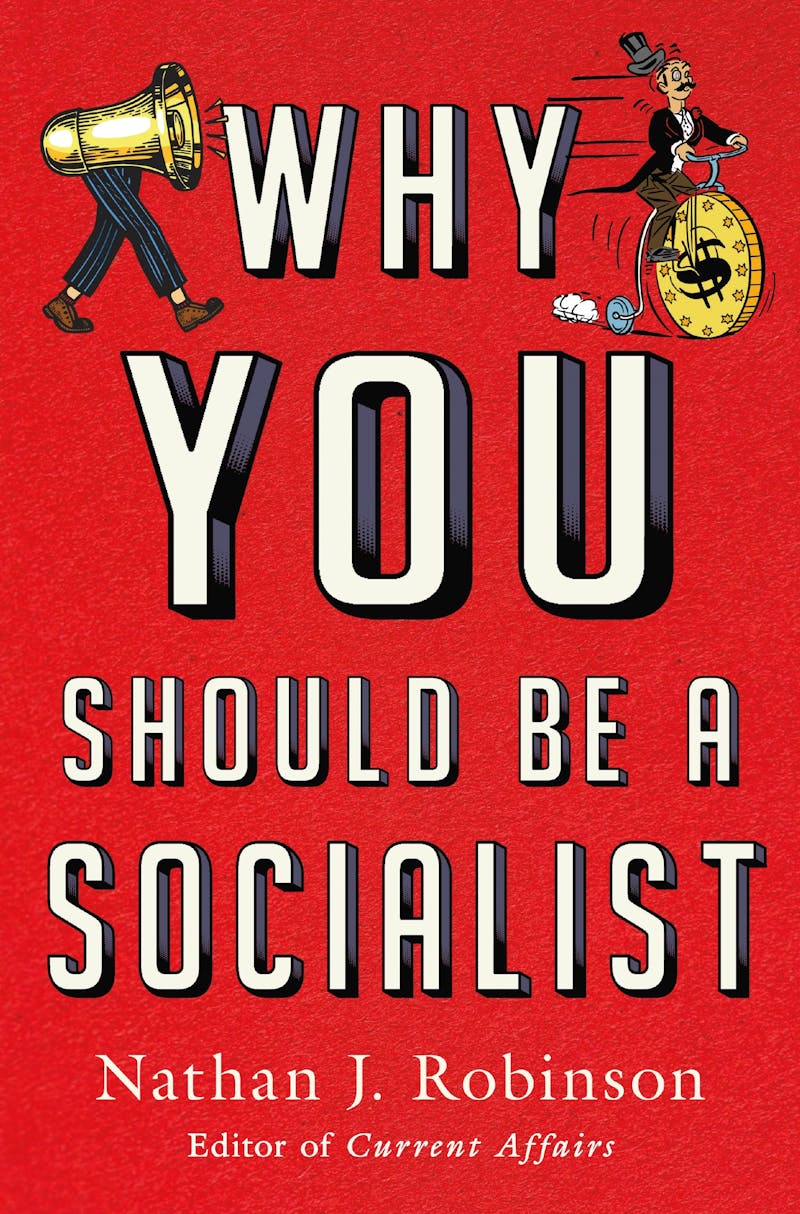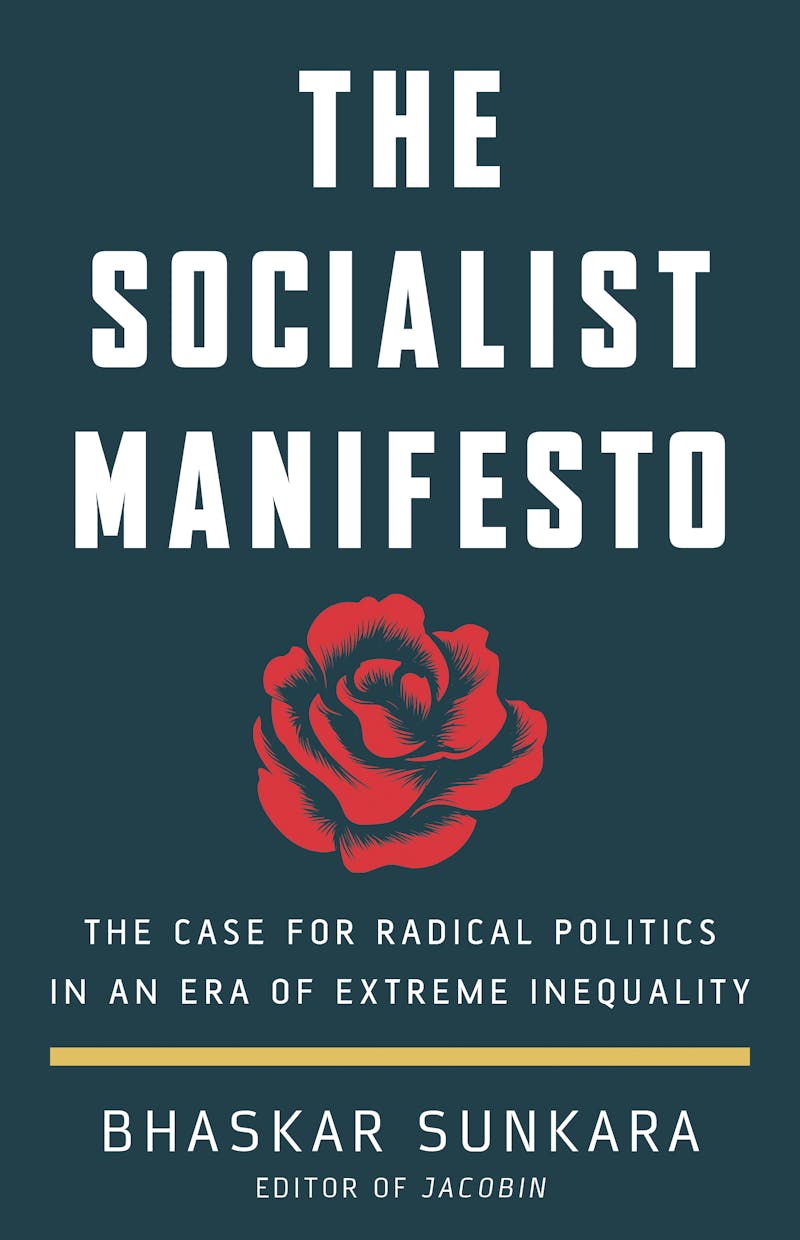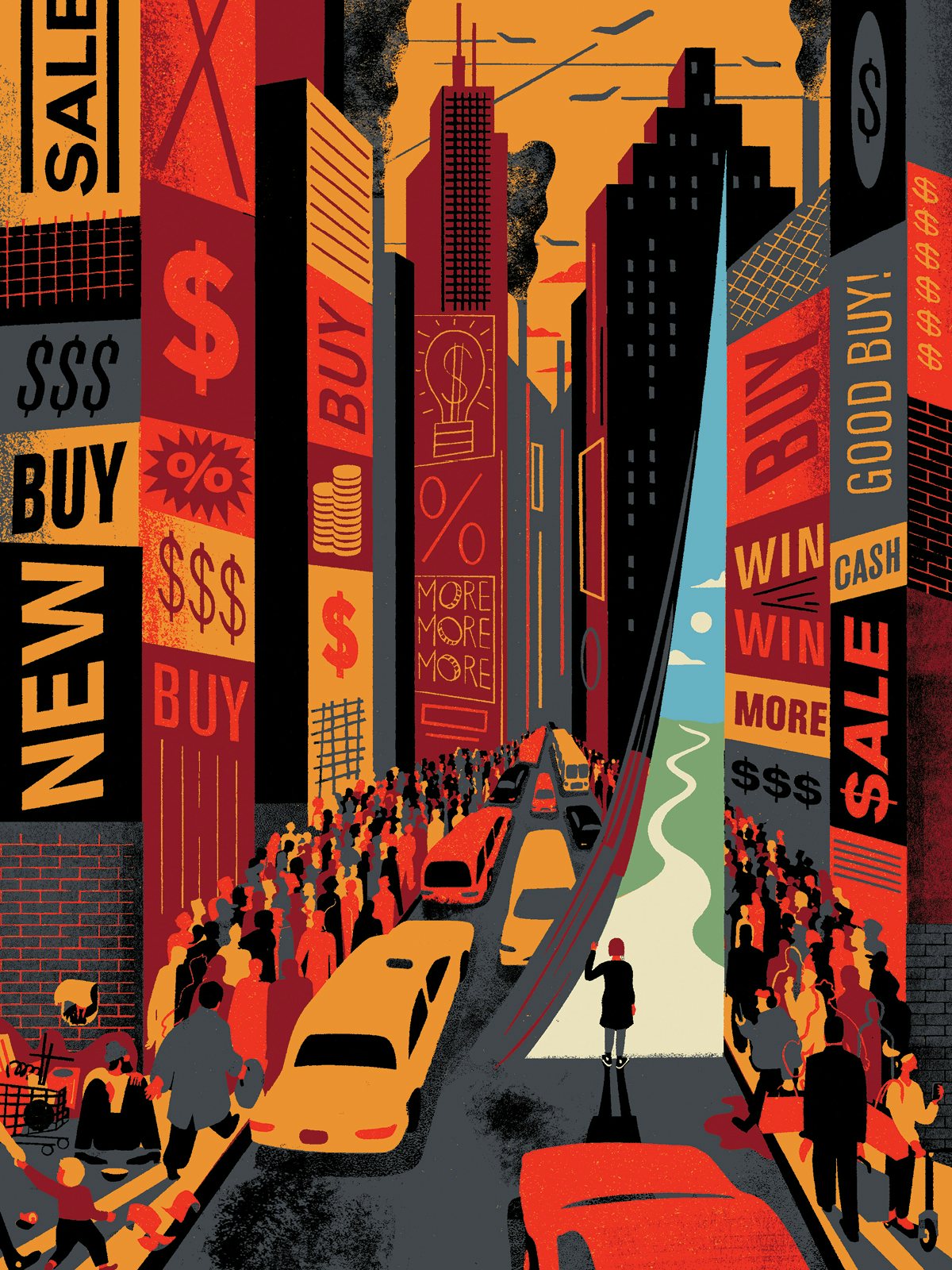J. Edgar Hoover and Joseph Stalin shared one passionately held belief: that “socialism” denoted the one-party dictatorship in Moscow and its satellites. The fact that this dictatorship would have been emphatically repudiated by a great many people with a much better right to adjudicate the use of the word “socialism”—Marx, Engels, William Morris, Karl Kautsky, Rosa Luxemburg, Jean Jaurès, Bertrand Russell, Eugene Debs, Antonio Gramsci, Ignazio Silone, George Orwell, Dwight Macdonald, and C.L.R. James, among many others—would have made no impression on Hoover or Stalin. The terminological status quo was far too convenient for both of them. It allowed Hoover to pretend that socialism was Stalinist tyranny tout court rather than the democratic movement that he had helped destroy in the United States earlier in the century, before the Bolshevik Revolution provided even the excuse of hysterical overreaction. And it allowed Stalin to claim the moral prestige of the socialist tradition, chief repository of the ideals of equality and full democracy, even as he was murdering every socialist he could get his hands on. I imagine the two old malefactors cackling together now in the lowest circle of Hell, comparing notes on their outrages against decency and humanity.

It is long, very long, past time Americans discarded Cold War shibboleths and talked sense to one another about equality, democracy, and cooperation. When we do, we will be talking about socialism, though it doesn’t matter what we call it. We may even have to give up the word—depressingly many Americans still believe what J. Edgar Hoover believed or, even more depressingly, what Ayn Rand believed: that solidarity is a delusion and altruism a pathology. A lot of fancy stepping may be required to avoid the deadly bog of misunderstanding that almost immediately materializes when a left-wing American engages in political discussion with a right-wing fellow citizen. But there’s no avoiding it.
Two new books should make the left-winger’s job much easier, supplying many telling facts, much relevant history, and, in these spiritually parched times, a welcome spritz of utopian imagination. Both aged 30, Nathan Robinson and Bhaskar Sunkara are leading left intellectuals and entrepreneurs. In the latter capacity, each started a radical magazine in print form—Robinson’s Current Affairs and Sunkara’s Jacobin—and within a few years made a financial success of it. Compared with that remarkable feat, organizing a socialist revolution will doubtless present few difficulties. Not surprisingly, these two books reflect the personalities of the two magazines. Like Current Affairs, Why You Should Be a Socialist is first-person and playful, anecdotal and indignant. Like Jacobin, The Socialist Manifesto is earnest and analytical, sober and strategic. Two guides, with something for every temperament.
The root of socialism, Robinson writes, is revulsion. Unnecessary suffering, untasted joys, unexercised talents, wasted lives: These are everywhere, if you have eyes to see; and if you also have a heart to feel, then you’re on the threshold of socialism. Robinson aims to bring you over. “In the United States last year, 41 percent of workers didn’t have even one day of paid vacation,” he writes. “Thirty-six percent didn’t have a single day of paid sick leave.” Half of all private-sector pensions have disappeared. One in five households has zero or negative net worth. The net worth of the top one percent is greater than the net worth of the bottom 95 percent. Suicide and depression rates are up; life expectancy in the bottom half of the income distribution is down; and poor adults are five times as likely to report being in poor health as rich adults. Hundreds more examples follow in the same vein. Robinson preaches this familiar socialist sermon with wit and fervor. Your mileage may vary, but I find it never gets old.

Another endearing trait: Why You Should Be a Socialist is full of answers to imagined objections by nonsocialists. (There are 300 million guns in America, very few of them owned by socialists, so we will have to get very good at answering objections.) Robinson is particularly adept at countering the standard libertarian complaint that the rich deserve what they have. Quite a few of them, he points out, merely took the trouble to be born to other rich people. And those who “earned” their money wouldn’t last a day in the marketplace without the social, legal, and physical infrastructure constructed and maintained by government: courts, roads, police, schools, food and drug inspections; environmental, occupational safety, and transportation safety regulations; not to mention a vast amount of basic research, which has made possible a great many commercial products for which business claimed the credit (and the profits).
Actually, libertarianism is even emptier than that. If we want to be ultra-logical—like, say, Star Trek’s Vulcans—then no one deserves anything. Everything we are and do results from our character, talents, and upbringing. And all these are what John Rawls called “morally arbitrary”—things bestowed on us, which we can’t take credit for. Philosophically speaking, there are no grounds whatever for claiming ownership of resources desperately needed by others.
Robinson is not strong on strategy. He enthusiastically enumerates the items of Bernie Sanders’s Agenda for a New America. He explains and endorses the Green New Deal. He offers half a dozen structural reforms to the democratic process, all of them so urgently necessary and obviously fair that only a Republican could fail to support them. He cites a dozen left organizations, describes their activities, and encourages readers to join or support them. It is a somewhat heterogeneous, not to say promiscuous, outline of what is to be done, uninfluenced by abstract theory or organizational allegiance. He seems to believe that every bit of suffering relieved, every helpless person empowered, and every patch of intellectual darkness dispelled and ideological obfuscation unmasked is a step, however small and halting, toward socialism. Some rigorous socialist theorists would doubtless scoff at his sentimental humanitarianism. I applaud it. Robinson quotes Terry Eagleton: “A socialist is just someone who is unable to get over his or her astonishment that most people who have lived and died have spent lives of wretched, fruitless, unremitting toil.” Exactly. It is primarily habits of the heart (to borrow Tocqueville’s phrase) that make us saints or swine, socialists or plutocrats. Theory comes a long way after.
Bhaskar Sunkara is less sentimental, intent instead on plotting the left’s path to power, gauging the balance of forces, considering alliances, weighing short-term versus long-term gains. The value of The Socialist Manifesto lies not so much in this strategizing, however, as in “A Day in the Life of a Socialist Citizen,” the ingenious thought-experiment that opens the book. Sunkara imagines life in a pasta sauce factory in New Jersey as socialism gradually arrives in America over the middle decades of the twenty-first century. Initially owned by a genial old Italian American, the company is hit hard by national and international pressures. The owner is sincerely sorry, but the workers have to tighten their belts. They form a union, but there is only so much it can do: Some things, like the compensation of owners and managers, are not negotiable.
As the Boomers die off and the Millennials take their place, however, the country’s politics move left. New Jersey native son Bruce Springsteen, at the head of a left-populist movement, is elected president. Social democracy appears: “health and education become social rights; child care and housing are made affordable.” Capitalist opposition is moderate but steady, effective enough to radicalize quite a few people. Debates swirl everywhere about whether to go full-socialist, and eventually a majority decides to. All enterprises above a certain size—including the pasta sauce factory—are nationalized and handed over to their employees, who thereafter vote on compensation, discipline, the division of labor, whether to reinvest profits, and so on. Despite furious capitalist opposition, the new order survives its birth pangs.
This possible turn in humanity’s fortunes is narrated wryly and unportentously, and (apart from the role of Bruce Springsteen) it actually seems plausible. I have no idea whether the final shape (if there is a final shape) of the typical socialist enterprise will much resemble Sunkara’s imaginary pasta sauce factory. But I’m sure that we won’t get wherever we do arrive without many evolutions of carefully thought-out models like his.
Most of the rest of the book consists of a tour d’horizon of nineteenth- and twentieth-century European, American, Asian, and African radicalism. It is well done—brisk and undogmatic—and will no doubt be useful to people new to the subject. Socialists are notoriously and regrettably quarrelsome, however, and I can’t help taking exception to Sunkara’s chapter on the Bolsheviks. It is sympathetic, though not uncritical. He admires Lenin, with reservations, and believes the Party came to power in a “genuine popular revolution” and “tried to make good on their stated aims.” I would argue, on the contrary, that the October Revolution was a coup, whose inevitable result was a harsh one-party dictatorship, and that Lenin was a cruel and duplicitous fanatic who scorned the very ideas of freedom and democracy and never gave a thought to popular sovereignty or the welfare of the Russian people or indeed to anything other than how to attain and consolidate power.
Does a discussion of Bolshevism even belong in a twenty-first–century socialist manifesto, except perhaps as a brief and lurid cautionary tale? If socialism is the popular democratic control of the economy and society—genuine and not, as in the United States, merely formal—then not only was the Soviet Union at no point in its existence the embodiment, even partial, of anything that Sunkara (who is staunchly anti-authoritarian) or I would call socialism; it was not even trying to be. What was socialist about it? Well, in the first place, it called itself socialist and claimed to speak for the working class. In the second place…. There is nothing in second place, or third place, or any other place. From day one after the “genuine popular revolution,” all independent worker and soldier initiatives were crushed, while non-Bolshevik politicians and intellectuals were told to go jump into the “trash can of history,” in Trotsky’s much-admired and revoltingly thuggish phrase. Popular self-government was not even dreamed of. What, exactly, are twenty-first–century Americans supposed to learn from all this—except, perhaps, not to trust people who admire the Bolsheviks?
As Sunkara acknowledges, Chinese, Vietnamese, Cuban, and other Soviet-style regimes were anything but “socialist.” It would make more sense to describe them as “forced modernization states” or “national development states.” Such states come into being when an independence movement fights off foreign powers or domestic elites who wish to integrate the developing country into the global economy on terms favorable to the capitalist nations: wide-open financial markets and currency speculation, restrictions on labor organizing, few or no taxes on business, unrestricted profit repatriation, minimal environmental and occupational safety regulations, and all the rest of what makes for a “favorable investment climate.” (That should sound familiar: It is the trajectory of the American political economy over the last 40 years, as corporate and financial elites have dismantled the New Deal.) If the nationalist regime achieves independence, it must somehow drag the country into the modern world. It is a long and often brutal process to industrialize without access to foreign capital—and of course the capitalist countries, especially the United States, would not dream of helping poor countries develop without assuming effective (and very profitable) control of their economies. Hence the draconian, authoritarian character of such regimes, which has nothing to do with socialism and everything to do with American foreign policy.
There are some important matters that neither book comes to grips with. Libertarian hero Friedrich Hayek claimed to have demonstrated that well-functioning markets were uniquely able to match supply and demand, to yield accurate prices, and to avoid shortage or excess; and in every subsequent conversation between a conservative and a socialist, the conservative has waved Hayek’s demonstration in the socialist’s face. A few socialist writers have tackled Hayek’s “information problem,” but there’s no agreed-on socialist solution, apart from insisting that of course we have no use for central planning. Given the resources of contemporary information technology, it ought to be possible to decentralize the planning process and model an economy—perhaps, as Sunkara suggests (without elaboration, alas), one including commodity markets but not capital and labor markets—that will produce freedom, equality, and abundance. If some socialist has cracked this problem, the news hasn’t gotten out.
Then there’s the far less theoretical problem of the capital strike (again, mentioned by Sunkara but only in passing). Since the Bretton Woods framework was discarded in the 1970s, capital has regularly taken flight from developing countries at the first sign of concern by a country’s government for the welfare of its people, which usually involves voiding the blank check that business demands and generally gets before investing in poor countries. Developed countries are not exempt from this discipline. When François Mitterrand tried to introduce serious socialist reforms in 1981, France’s capitalists stopped investing and sent $5 billion out of the country (a lot of money back then, apparently), which brought his government to its knees. It’s not too soon to give serious thought to how to meet what is sure to be a savage capitalist response to even the first moves toward socialism.
When the capitalists are defeated, a lower-key war against socialist politicians and bureaucrats should begin. For the revolution will not repeal human nature, and socialist officials will have to be kept accountable. Since the one thing every American now professes to know about socialism is that the government will run everyone’s life, socialist writers should have a convincing argument—in the form of a model of democratic politics—for why it won’t.
What might a postcapitalist politics look like? More than anything else, it will resemble a societywide conversation, consisting of millions of smaller local ones, convened by ordinary citizens in living rooms, churches, schools, workplaces, libraries, municipal buildings, and other venues. The local discussion groups will communicate regularly with one another, sharing information and conclusions, and will join in formulating questions and instructions for local officials and legislators. They will also send delegates to state and regional citizens’ groups, which will conduct discussions with other such groups and then, jointly or separately, with state and national legislators and policymakers. If the latter persistently ignore the citizens’ groups, a swift and straightforward recall process will get their attention.
This may sound like a lot of meetings, but then, we’ll all have a good deal more free time. (And anyway, meetings will be voluntary.) By my estimate, if the economy’s productivity gains over the last 40-odd years had been applied to shortening the workweek rather than to enriching investors, the average workweek would now be around 20 hours. There are many, many good reasons for shortening the workweek. One of the best is that democracy takes time.
Finally, the elephant in the room. Both Robinson and Sunkara acknowledge global warming, of course, and argue, not implausibly, that only socialist governments can effectively deal with it. But I can imagine a young idealist—actually, around 10 million of them—asking our authors: “Who has time for political and economic reforms? What is the good of political and economic equality in a flooded, burning, famine-ridden world? Every molecule of carbon dioxide we add to the atmosphere is bringing catastrophe closer. Surely we should postpone socialism for a generation or two and concentrate all our energies on saving the earth?” I would very much like to have read long and considered answers from Robinson and Sunkara to that question.
On the whole, socialism is fortunate in these two books. They are timely, open-minded, well-argued, well-documented, and well-written (except, perhaps, for a few too many italics and exclamation points in Robinson, and Sunkara’s fondness for “struggle,” “building a socialist movement,” and other unlovely bits of left-wing jargon). Notwithstanding the latter trifling defects, it will not be Robinson’s or Sunkara’s fault if socialism does not arrive by the end of the twenty-first century.
In 1888, addressing the Fabian Society, George Bernard Shaw took the long view:
Let me, in conclusion, disavow all admiration for this inevitable, but sordid, slow, reluctant, cowardly path to justice. I venture to claim your respect for those enthusiasts who still refuse to believe that millions of their fellow creatures must be left to sweat and suffer in hopeless toil and degradation, whilst parliaments and vestries grudgingly muddle and grope towards paltry installments of betterment. The right is so clear, the wrong so intolerable, the gospel so convincing, that it seems to them that it must be possible to enlist the whole body of workers—soldiers, policemen, and all—under the banner of brotherhood and equality; and at one great stroke to set Justice on her rightful throne. Unfortunately, such an army of light is no more to be gathered from the human product of nineteenth century civilization than grapes are to be gathered from thistles.
Can it be that the human product of twenty-first–century civilization is not much better endowed than its nineteenth-century predecessor with the socialist virtues: solidarity, self-respect (would a self-respecting people tolerate billionaires?), and the capacity for critical thought? We are certainly less well endowed with one trait that has only recently become a virtue but may turn out to be the most important of all: attention span. The revolution may be Facebooked, tweeted, and Instagrammed, but then what? Will we put away our phones, and gather, and act? Or will the endless waves lapping against our senses—messages, posts, tweets, links, telemarketing, and above all, always and everywhere, ads—finally immobilize us? Will we be our phones by then?
